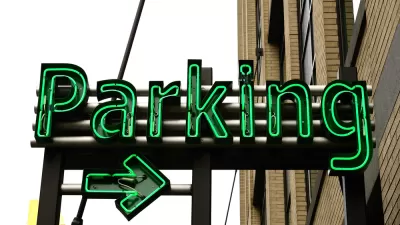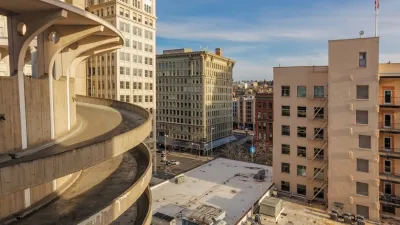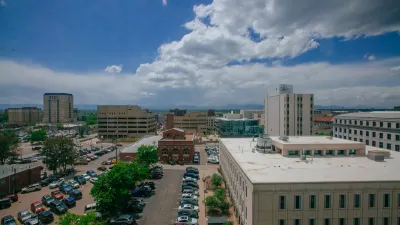Rather than trying to make parking lots with expensive surfaces that cost to maintain, Portland should eliminate its parking minimums, according to this article.

Surface parking lots in urban areas cause a number of different problems. They take up space that could be used for housing, they make it cheaper to drive, which effects a city’s air quality, they add to the urban heat shielding of the city, and, because they don't absorb rain, they put pressure on water systems. Portland officials have proposed legislation to mandate developers solve two of these problems in future developments by forcing developers to use permeable surfaces. This would mean these spaces wouldn't reflect as much heat or push as much water in to sewers, but they wouldn't come cheap.
"If Portland planners are honestly concerned about urban heat and the environment then they should propose eliminating minimum parking requirements," Tony Jordan argues in PDX Shoupistas. This strategy, recently employed by Mexico City, would eliminate some of these lots altogether, and instead of making development more expensive, which would in turn drive up the cost of housing, it would make some developments less expensive. Accomplishing two goals in a city that is becoming more expensive.
"Planners and officials might be worried that neighbors will complain about developments with fewer parking stalls, but maybe it’s time to show city officials and planners that people concerned about housing affordability, climate change, and traffic safety can make just as much, or maybe more, noise," Jordan writes.
FULL STORY: Portland Plans To Make Parking More “Green” And More Expensive

Planetizen Federal Action Tracker
A weekly monitor of how Trump’s orders and actions are impacting planners and planning in America.

Congressman Proposes Bill to Rename DC Metro “Trump Train”
The Make Autorail Great Again Act would withhold federal funding to the system until the Washington Metropolitan Area Transit Authority (WMATA), rebrands as the Washington Metropolitan Authority for Greater Access (WMAGA).

DARTSpace Platform Streamlines Dallas TOD Application Process
The Dallas transit agency hopes a shorter permitting timeline will boost transit-oriented development around rail stations.

San Francisco's School District Spent $105M To Build Affordable Housing for Teachers — And That's Just the Beginning
SFUSD joins a growing list of school districts using their land holdings to address housing affordability challenges faced by their own employees.

Car-Centric LA Suburb Looks to a Train-Oriented Future
City leaders in Rancho Cucamonga, the future western terminus of the Brightline West rail line to Las Vegas, want to reimagine the city as a transit-oriented, pedestrian-friendly community.

New Alaska Bitcoin Mine Would Burn as Much Energy as the State’s Largest Coal Plant
Fueled by “stranded” natural gas, the startup hopes to become the largest in the US, and to make Alaska an industry center.
Urban Design for Planners 1: Software Tools
This six-course series explores essential urban design concepts using open source software and equips planners with the tools they need to participate fully in the urban design process.
Planning for Universal Design
Learn the tools for implementing Universal Design in planning regulations.
Municipality of Princeton
Roanoke Valley-Alleghany Regional Commission
City of Mt Shasta
City of Camden Redevelopment Agency
City of Astoria
Transportation Research & Education Center (TREC) at Portland State University
US High Speed Rail Association
City of Camden Redevelopment Agency
Municipality of Princeton (NJ)





























